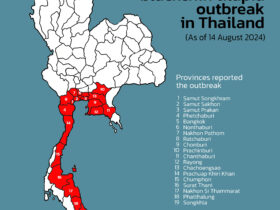Statement made by: Women in Fisheries. Masifundise Development Trust.
Made at: Lambertsbaai, South Africa, 18th February 2010.
“Our fishing communities are currently facing a social, economic and environmental crisis. The human rights of our communities, particularly those of young girls and women, are being violated on a daily basis and we can no longer protect our children or our marine resources under these conditions”.
This was the strong message from 43 women leaders representing 16 small-scale fishing communities from the Northern and Western Cape Provinces gathered at the Women in Fisheries Workshop held in Lambertsbaai, South Africa from the 16th to the 18th February.
The workshop, organized by Masifundise Development Trust, highlighted the plight of women and girl children from small-scale fishing communities who are currently bearing the brunt of increased poverty and drug- related violent crimes. The women link these social problems to the current fisheries management regime which is based on an individual rights ethic and which they believe has undermined the more sustainable, community-based nature of their fishing traditions. The participants at the workshop issued the following statement at the end of their deliberations, urging the South African government to hear their pleas for intervention:
Our fishing communities are currently facing a life threatening social, economic and environmental crisis arising from the combined effects of the individual quota system, the closure of the fish processing factories and the lack of effective governance and management of marine resources. This has led to a situation in which we live under constant threat and fear due to violent drug and poaching related crimes. The human rights of our communities, particularly those of young girls and women, are being violated on a daily basis and we can no longer protect our children or our marine resources under these conditions.
Noting
That apartheid affected many Black communities that depended on the sea for their livelihoods. However, for many of these communities their access to marine resources has been further restricted since 1994 through the introduction of the new fishing rights policies which have been geared towards the big commercial companies and not the values, traditions and customary practices of our small-scale communities;
Noting
That women living and working in traditional fishing communities have historically played a very significant role in the development of the fishing industry in South Africa, as well as in sustaining life and livelihoods in coastal communities; and
That much of the work that women have done in the past, and continue to do in small-scale fishing communities, is not recognised, nor is it regarded as valuable,
Noting
That many women from coastal fishing communities have worked as seasonal workers in the fish processing plants, working long hours under extremely harsh, icy conditions and most have suffered chronic health problems as a result of this work, with no compensation or adequate health care.
Noting
That many women have lost their male partners and breadwinners at sea, with no compensation or financial support available to their families,
Noting further
That many mothers and fathers had to work long hours in the fishing industry, and that in many instances their children were forced to leave school at an early age and take care of each other. This resulted in low formal education levels in many communities and has further contributed towards the social and economic hardship experienced in these areas.
Noting therefore
The provisions on Equality in Section 9 of our Constitution, and the provisions contained in the Convention on the Elimination of All Forms of Discrimination Against Women, Agenda 21, the Beijing Platform of Action and the Millennium Development Goals and that the South African government has ratified these international legal instruments,
We strongly assert our right to life, to dignity, to safety and security and to sustainable development.
Noting too, our rights as women to participate equally and effectively in the development of a new small scale fisheries policy for South Africa and our right to benefit equitably from this policy,
We call on our President Jacob Zuma, on our Minister of Agriculture, Forestry and Fisheries, Minister Tina Joemat-Petersen, on our Minister of Environmental Affairs and Water,
Minister Sonjica and on the acting Deputy Director of Marine and Coastal Management, Dr Razeena Omar, to intervene immediately in the crisis facing our fishing communities and our marine resources.
We appeal to our government at all levels to commit to a new small scale-fishing policy that will contribute to the restoration of a community-based approach to the governance of our marine resources, based on an ethic of care in coastal communities, so that we can sustain our communities and our natural resources for the benefit of the generations to come.


Leave a Reply